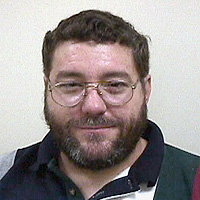 |
Lee Hester (Philosophy Department, Oklahoma City University), November 19, 1999 Two Talks on Native American Philosophy and Religion The Bible and the Feather 12:00pm-1:00 pm, EESAT 176 What are the differences between Native American philosophy and that of the Euro-Americans? This presentation is meant, as much as possible, to be a traditional Native American talk exploring this question. Ethical Pluralism or Assimilation Redux? Callicott's Earth's Insights 2:30pm - to 4:00 pm, in 110 EESAT 110 Hester will argue that the pluralism presented in J. Baird Callicott's book Earth's Insights is at best a form of assimilation and at worst an attempt at conquest by Callicott's overarching postmodern scientific world view. Hester currently teaches in the philosophy department at Oklahoma City University and works for the Choctaw Nation of Oklahoma, where he serves as a cultural researcher. His primary research interest is Indian sovereignty, although he has been active in environmental issues since his youth when he won a Presidential Award of Excellence for Environmental Protection Services. He is cofounder and coeditor with Dennis McPherson of Ayaangwaamizin: The International Journal of Indigenous Philosophy. He serves on the governing boards of the Oklahoma Choctaw Tribal Alliance, the Wordcraft Circle of Native Writers and Storytellers, and the Oklahoma Association for Healthcare Ethics. |
|
Ignat Avsey (Translator, The Karamazov Brothers), November 10, 1999 "The Village of Stepanchikovo" Dostoevsky Conference in Denton |
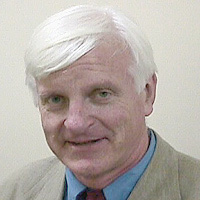 |
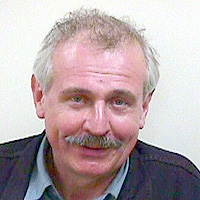 |
Roger Heathcott (English Actor), November 10, 1999 Selections from "The Grand Inquisitor" Dostoevsky Conference in Denton |
|
Gary Cox(Director, Russian Studies, Southern Methodist University), November 10, 1999 Gender and Kinship in Doestoevsky's Fiction and Slavic History Dostoevsky Conference in Denton |
 |
 |
Richard A. Watson (Department of Philosophy, Washington University, St. Louis), October 18, 1999, EESAT 125, 7: 30 pm Rene Descartes in the 21st Century This is a speculative and prophetic lecture concerning the future of philosophy and neuroscience in Western civilization at the dawn of the third millennium. Watson is a professor of philosophy at Washington University, St. Louis and author of
and numerous other books and articles on subjects as wide-ranging as cave exploration and postmodern archeology |
|
Buddy Huffaker(Aldo Leopold Foundation), September 14, 1999, EESAT 125, 7: 00 pm For fifty years, the land ethic of Aldo Leopold has been the inspiration and academic foundation of environmental philosophy. Huffaker discusses ways to put the land ethic into action. The Aldo Leopold Foundation, a nonprofit organization founded by the children of Aldo Leopold, keeps his legacy alive by promoting the "Land Ethic" he so eloquently defined. The Foundation engages in ecological restoration, environmental education, land preservation, and scientific research on the 1,400 acre Leopold Memorial Reserve in central Wisconsin and surrounding landscapes. The centerpiece of the reserve is the original Leopold sand county farm and "Shack." Buddy Huffaker has overseen all land conservation activities for the Aldo Leopold Foundation since 1996. In 1999 he became the Executive Director of the Foundation. Buddy did his master's work at the University of Illinois, monitoring prairie restorations and assessing various sampling techniques. He has worked as an educator, has been a private landscape architect and designer, and has served as a field ecologist for the Nature Conservancy in Illinois. |
 |
 |
Robert Mugerauer (Department of Philosophy, University of Texas, Austin), April 17, 1999 Design and Violence: Architectures of Decisive Action and Witness Since 1980, Richard M. Owsley, Professor Philosophy (Retired), has tried to make students and fellow faculty members more aware of the phenomenological movement in philosophy by holding meetings on the life and the thought of Martin Heidegger April 15-17, 1999. The UNT Department of Philosophy and the College of Arts and Sciences is proud to sponsor the 19th Heidegger Conference. This gathering is open to all students faculty, and staff who are interested in existential phenomenology generally and the radical ontology of Heidegger specifically. This year's meeting will also be a preliminary event to the Earth Day celebrations at the EESAT building and around campus. Our featured speaker will be Prof. Robert Mugerauer of the University of Texas/Austin. Dr. Mugerauer is a specialist in environmental architecture and applies Heideggerian philosophy in his theories of place and living space. |
|
Ulrik Birk Nissen (The Faculty of Theology, Aarhus University, Denmark), March 9, 1999, EESAT 320A, 3: 30 pm Moral Reason, Behavior Rationality, and Environment Human action can be rational in two different ways: it can be principle oriented or preference satisfaction oriented. The former can be called behavior rationality; the latter can be classified as moral reason. I examine whether the differences between these forms of rationality imply that they exclude one another, and whether the same action can motivated by both of them. If the latter, another question arises: what consequences does a combined rationality have for the actions of humans with regard to nature and environment? I discuss the possibility of including the protection of nature in John Rawls' political theory in his Political Liberalism in the context of the positions taken by Peter Wenz and Mark Sagoff. I suggest that Sagoff's distinction between a reasonable and a methodical rationality makes it possible to read environmental issues into Rawls' political theory. |
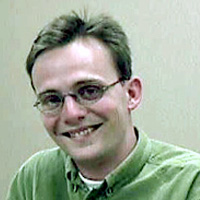 |
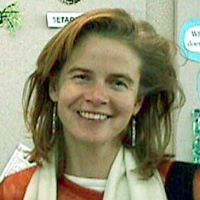 |
Irene Klaver (Department of Philosophy, California State University, Stanislaus), February 19, 1999, EESAT 110, 3: 00 pm Should There be a Fox in the Building? Klaver discusses the importance of ecofeminism and its special role in articulating background and boundary issues that facilitate the translation of environmental ethics positions into forms that are accessible and relevant to those who normally are left out of the contemporary dialogue. |
|
Chris Crittenden (Department of Philosophy, University of Tennessee, Knoxville), February 12, 1999, EESAT 110, 3: 00 pm A Defense of Val Plumwood's Anti-Dualistic Ecofeminism Crittenden intestigates two central and related aspects of Plumwood's ecofeminism. The first half of the paper examines her theory of dualism, raising a common objection that is then defused. The second half focuses on her ethical responsse to dualism, associating it with feminist studies in the morality of care, and thereby strenthening it against various problems that will be raised. |
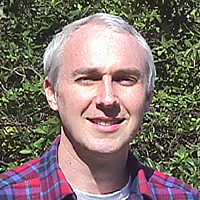 |
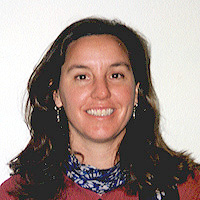 |
Lisa Gerber (Department of Philosophy, University of New Mexico), February 5, 1999, EESAT 110, 3: 00 pm Sharing Secrets with Nature: The Art of Intimacy Gerber examines the debate between ecofeminists and deep ecologists over the expansionist self, fusion with nature, and reciprocity with nature. |